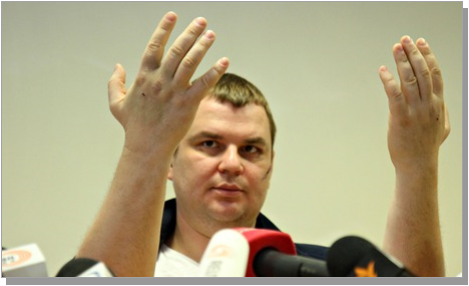The Ukrainian government released an activist, Dmytro Bulatov, on Sunday, February 2nd in response to pressure from the West. Protests have been taking place in the country since November, when President Yanukovych decided to forge stronger ties to Russia instead of signing a deal that would bring it closer to the European Union. Several protesters have died and Dmytro Bulato was “crucified” and tortured. The United States has joined the European Union in calling for an end to the violence and for Ukraine to make a compromise. Generally, protesters are from Southern and Western Ukraine, while Yankukovych’s supporters hail from the Russian-speaking Eastern part of the country.
Yanukovych’s cabinet has resigned, and his prime minister has been fired due to these protests. Yanukovych has granted temporary amnesty to protesters and has decreased restrictions on protesting. The opposition says this is not enough and demands the release of 116 prisoners along with the opposition leader Yulio Tymoshenko, a former prime minister who has been imprisoned since 2011. The US has promised to promote peace talks between the two sides.
At a security conference on February 1st, Secretary of State John Kerry attacked the Ukrainian government, and said the U.S. would aid the European Union in promoting a “democratic, European future” by championing the cause of the common man against “corrupt, oligarchic interests—interests that use money to stifle political opposition and dissent, to buy politicians and media outlets, to weaken judicial independence.”

